How Does John Locke Describe the State of Nature
State of nature in political theory the real or hypothetical condition of human beings before or without political association. John Locke describes the state of nature as governed by Natures law which he identifies with reason.

John Locke Biography Beliefs Philosophy History
State of nature is the state were humans existed before government was ever created.
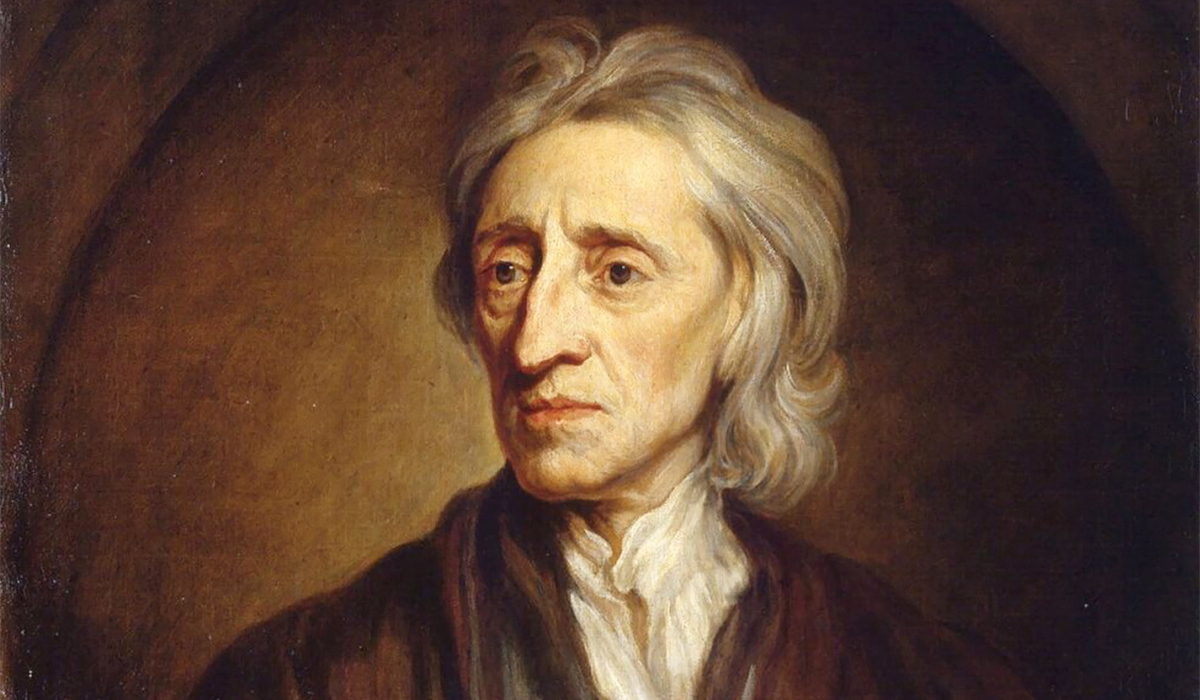
. When Locke refers to the laws of nature he is referring to the state of equality in which no one is superior or inferior unless the lord puts one above another. The notion of a state of nature was an essential element of the social-contract theories of the English philosophers Thomas Hobbes 15881679 and John Locke 16321704 and the French philosopher Jean-Jacques Rousseau 171278. Both present a stateless scenario but draw completely different conclusions with inhabitants of Lockes state of nature having greater security than those in Hobbes.
According to Locke in the state of nature ie. What are our three primary natural rights as states by John Locke. The state of nature as described by Locke is therefore one of equality because everyone has the same powers as hisher neighbor which implies a state of non-subjection.
How does John Locke describe the state of nature. The natural condition of mankind is a state of perfect and complete liberty to conduct ones life as one best sees fit. John Locke builds his famous theories of individual rights and government by consent upon a hypothetical state of nature.
He uses the libertarian notion of the individual as well as the device of the social contract to lay out his arguments. It is also a state of perfect freedom because the individual cannot depend on anyone. Government is required to promote the peace safety and public good of the people.
In a state of nature there are no social goods. In Chapter 2 Locke explains the state of nature as a state of equality in which no one has power over another and all are free to do as they please. The example Locke used to describe the state of nature was late seventeenth century north.
Lockes social contract is best described as freedom from the interference of others in ones life. Lockes Perspective of State of Nature. Each individual in the state of nature has the power to execute natural laws which are universal.
He makes an attempt to establish a theory of political obligation on the consideration of what people would invent if they were living in a society without the government. What did John Locke state about the State of Nature. Government is required to secure everyones property by providing against the three defects of the state of nature.
There once was a period were there were not any rules or laws to obey. In Chapter 2 Locke explains the state of nature as a state of equality in which no one has power over another and all are free to do as they please. According to Locke reason dictates no.
Sovereignty and protection of property life liberty Whos is responsible for enforcing the law in a. For Locke the state of nature was a thought experiment that attempted to describe the state of human society without government. Locke imagines a situation of state of nature where there was no government.
No farming housing technology or education. The State Of Nature. Thomas Hobbes John Locke And Jean Jacques Rousseau 902 Words 4 Pages.
There are no rules or government -John Locke. And all have equal rights in the realm of what they wish to do. Before modern civil society existed humans hunted and gathered in an environment lacking property rights and political organization.
For Locke the issue of justifying the State was to show how its authority can be reconciled with the natural autonomy of the individual. Before the appearance of political institutions human beings enjoyed what he called. See full answer below.
Life in the state of nature is brutal and short. The social contract in John Lockes declaration is the State of Nature. The state of nature is a state of equality with no one having more than another.
It is not a bellum omnium contra omnes without justice property and law but a state of peace in which individuals enjoy perfect freedom and equality under the protection of the law of nature. What does the individual possess in the state of nature. Locke states that God owns us and we are his property therefore one has the right to protect themselves from harm.
The issue of property a defining factor in Libertarian thought also comes into play. Locke also thought the state of nature was a state of equality and freedom but in a much. John Locke born in 1632 is another philosopher who was concerned with what the state of nature might be.
While living in a state of nature one is granted the benefits of the same facilities and the ability to achieve manifest destiny. One reason for these different conclusions lies in their opposing. He notes however that this liberty does not equal license to abuse others and that natural law exists even in the state of nature.
All men exist in a state of perfect freedom and equality. It was not a. The state of nature such defined and depicted by Locke is entirely different than that of Hobbes.
Locke addresses the natural instincts of people or the state of nature in order to define political power. As John Hallowell an American political philosopher stated it. Locke tries to imagine an original condition which is however pre-political but not pre-social.
Lockes Commonwealth Three requirements on Government Governments power can never extend farther than the common good. People can act freely without being held by any set of rules or laws that would curtail their freedom and happiness. John Locke on perfect freedom in the state of nature 1689 Found in The Two Treatises of Civil Government Hollis ed John Locke 1632-1704 wrote one of the most powerful defences of individual liberty in his Second Treatise of Government.
John Locke and Thomas Hobbes accounts of the state of nature differ greatly with regards to individual security.

State Of Nature In Philosophy Locke Rousseau Hobbes Video Lesson Transcript Study Com
What Is The Meaning Behind John Locke S Theoretical State Of Nature Quora

State Of Nature The State Of Nature In Locke Britannica

Thomas Hobbes Vs John Locke Ppt Video Online Download
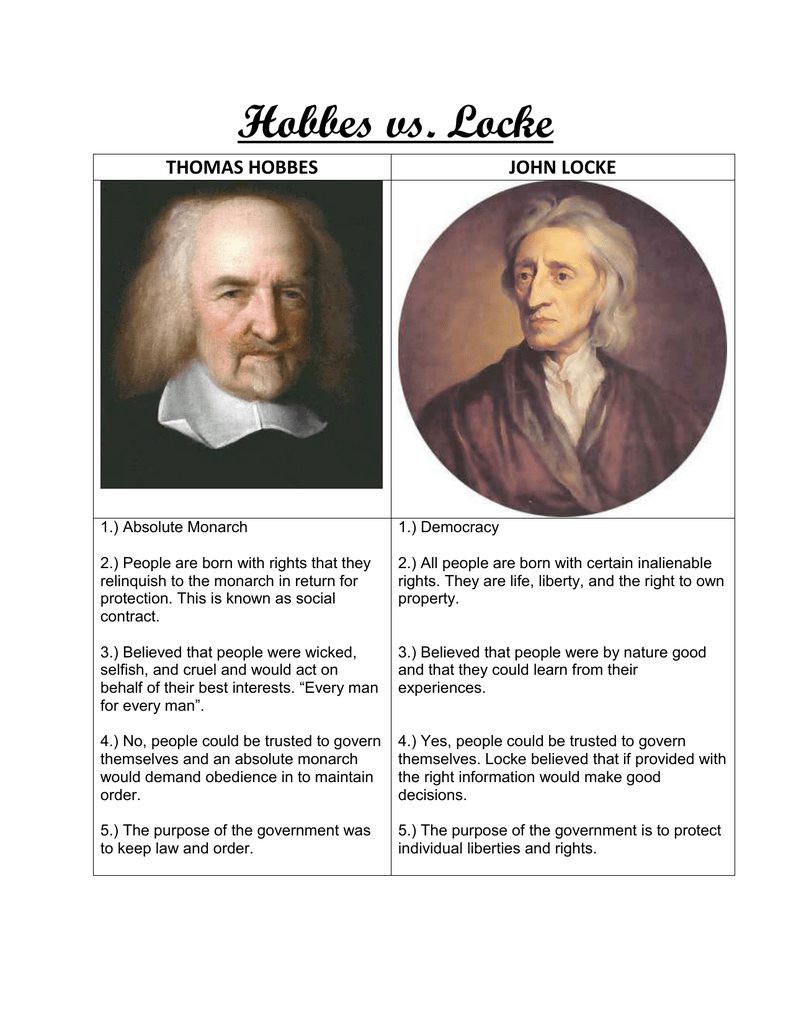
Thomas Hobbes And John Locke Social Contract Aulad Org

American Revolution Independence Day John Locke S Legacy National Review

Locke John Internet Encyclopedia Of Philosophy
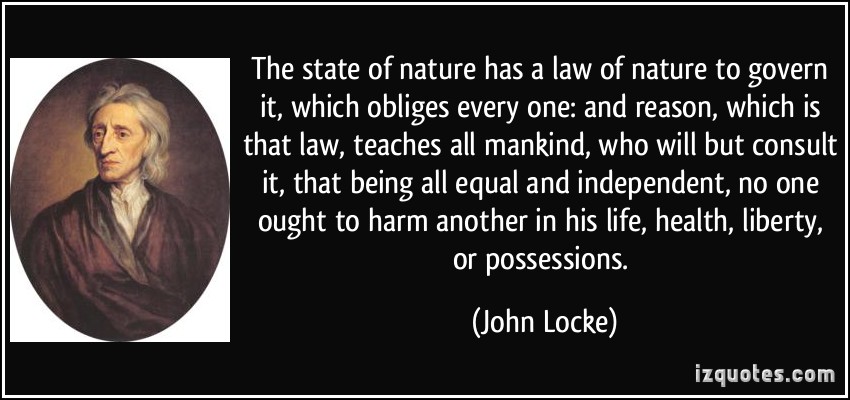
John Locke Human Nature Quotes Quotesgram
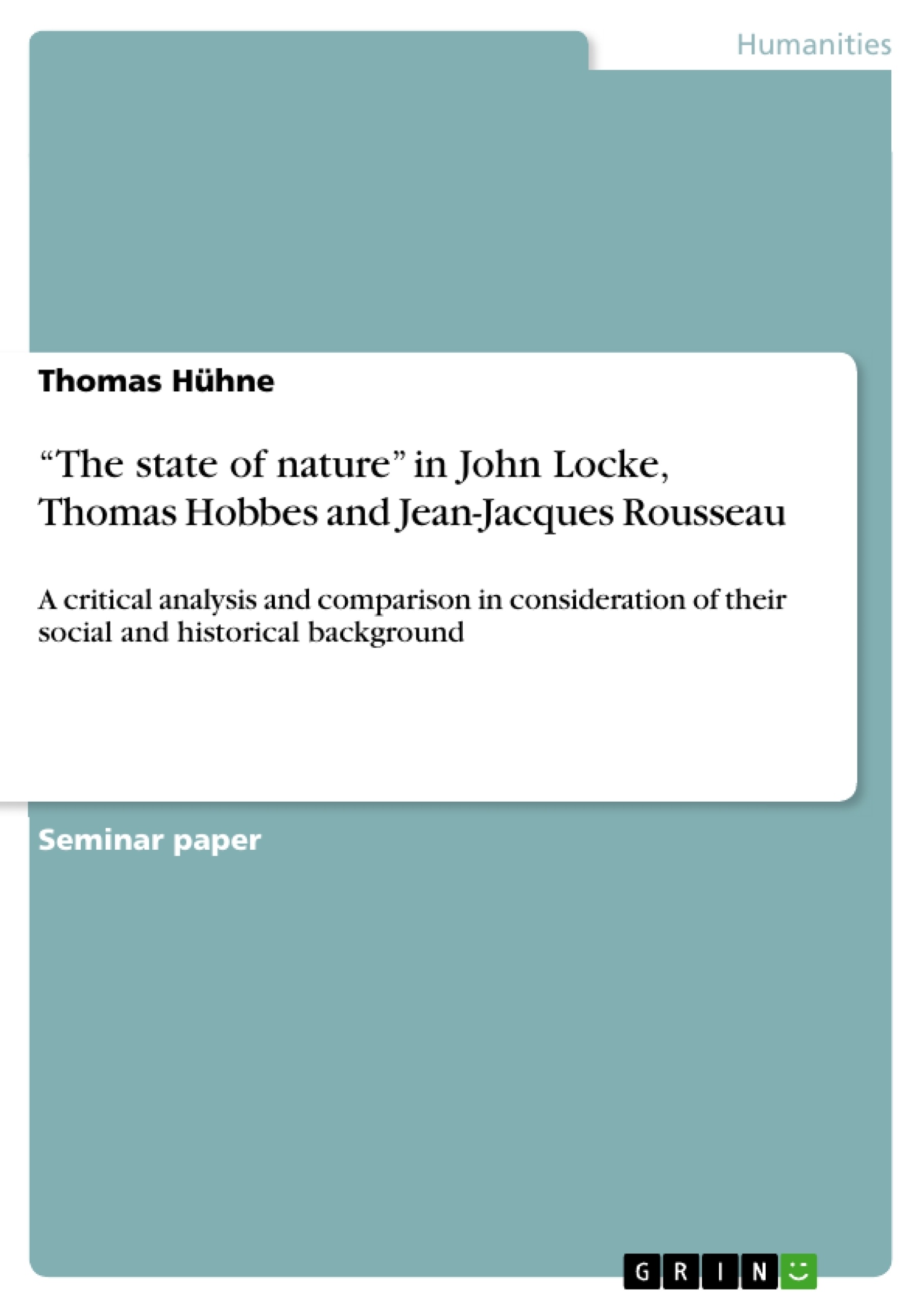
The State Of Nature In John Locke Thomas Hobbes And Jean Jacques Rousseau Grin
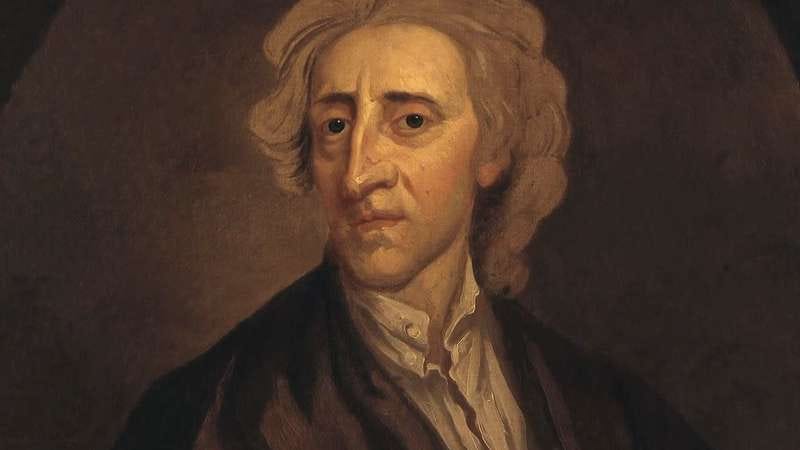
An Introduction To John Locke John Locke Was An English Philosopher By Austin Tannenbaum Medium

Empiricism Of John Locke Acumen Digital Magazine
State Of Nature John Locke Toolbox Hr

John Locke Locke S Political Theory Was Founded On Social Contract Theory Locke Believed That Human Nature Is Characterized By Reason And Tolerance Locke Ppt Download
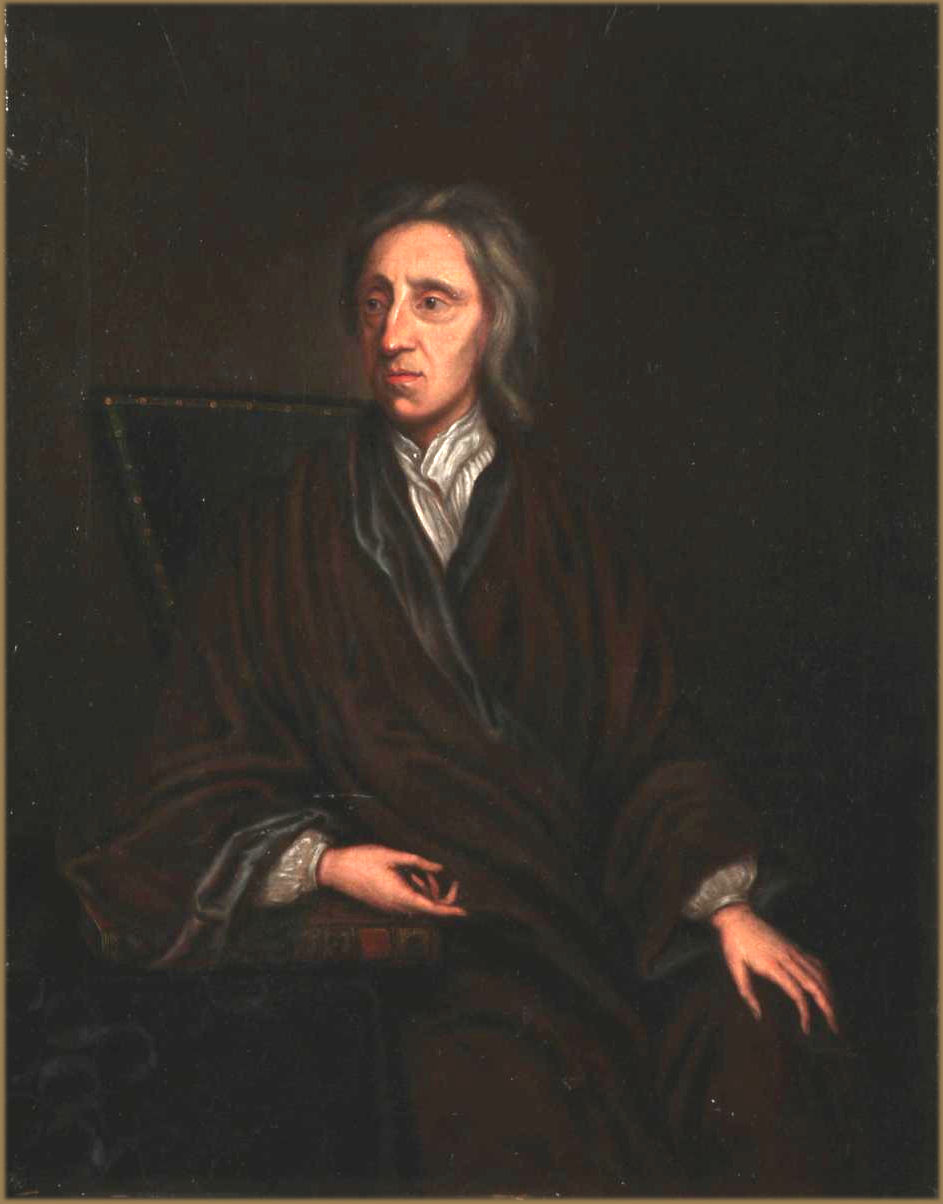
Portrait Of John Locke F R S 1632 1704 Artware Fine Art
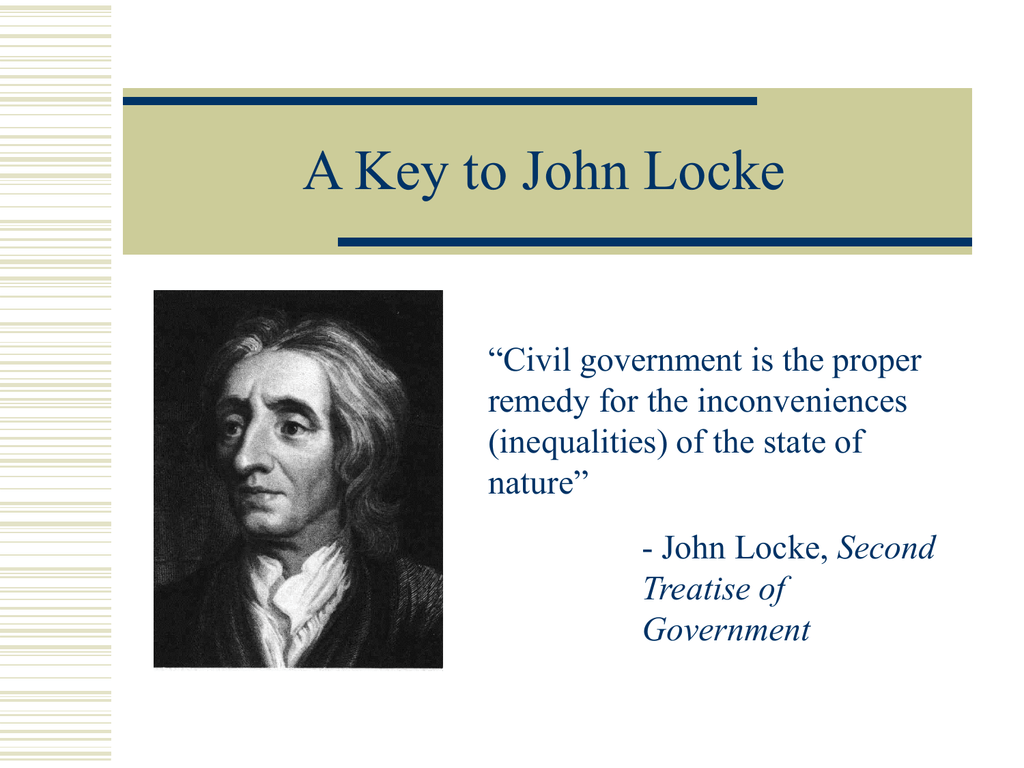
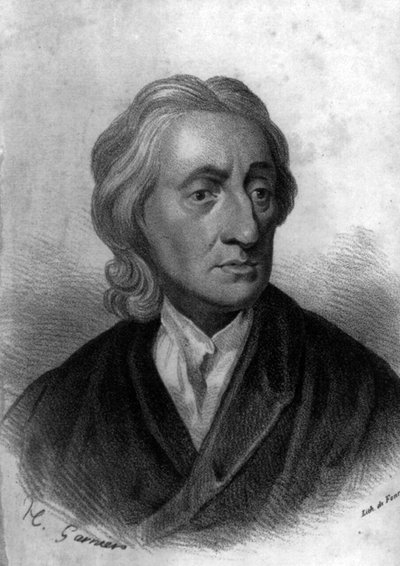


Comments
Post a Comment